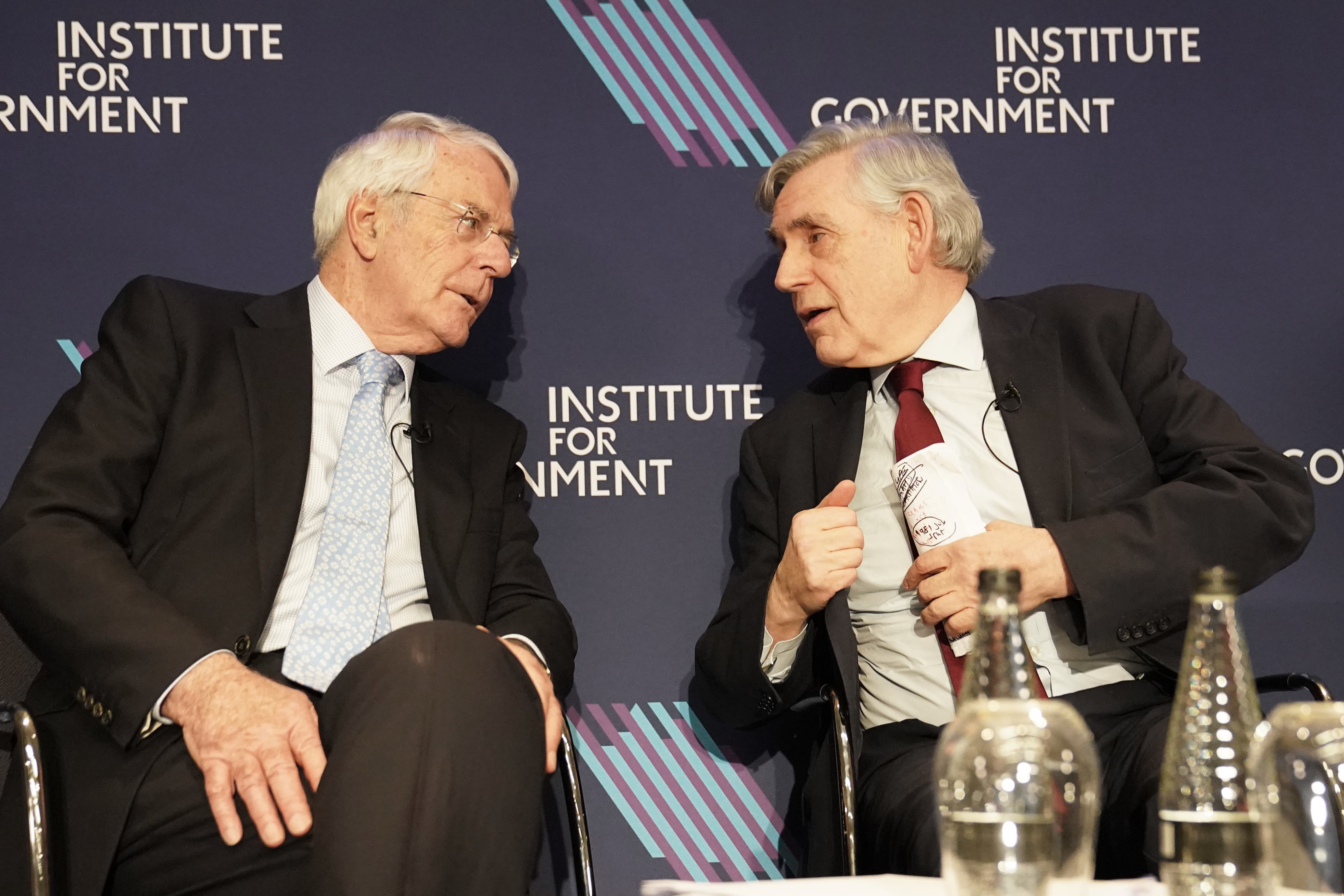Gordon Brown: Treasury must leave ‘comfort zone’ to ‘break out’ of low growth
He joined fellow former prime minister Sir John Major in calling for government reform.

Gordon Brown called for a “turnaround strategy” for the economy and urged the Treasury to get out of its “comfort zone” and help the UK “break out” of a low-growth cycle.
He joined fellow former prime minister Sir John Major on Monday in calling for government reform.
In a speech at the launch of a report by the Institute for Government (IfG), Mr Brown said: “We are in a make-or-break decade for our economy.
“Our growth levels are half what they were in the last two or three decades. Our productivity levels are now lower. The growth rate is now lower than it was at any time.”
Amid low investment, regional economic inequalities and falling living standards, “there has got to be a turnaround strategy,” he added.
“We cannot govern in the way we have been doing if we are going to make this a decade when we can see an economic recovery.
“We need to think with almost military precision about how we can put our economy on a war footing so that we are in a position to solve the problems I’ve just identified.”
The former Labour leader warned that the Treasury is at risk of withdrawing into a “comfort zone” in which it focuses solely on balancing the books and reducing the national debt.
Speaking in the week following Chancellor Jeremy Hunt’s Budget, Mr Brown accused the department of blaming “international factors, supply side difficulties, trade restrictions, even the weather” for failing to achieve economic growth.
“If it really restricts itself to being a finance department, then to me there is not much hope for the Treasury to be able to contribute to the economic agenda in the way it should.
“But if the Treasury working as an economic department, with No 10 and a National Economic Council – chaired by the prime minister and the chancellor jointly, staffed by the Treasury and the Cabinet Office – then in my view, we have a chance to break out of some of the difficulties that we’ve had in the past.”
The IfG report argued for the break-up of the Cabinet Office and the creation of a new smaller executive cabinet committee, made up of a handful of ministers appointed by the prime minister.
The review is the result of a year-long “commission on the centre of government” convened by the think tank.
Labour leader Sir Keir Starmer is considering forming a new four-person executive cabinet to make strategic decisions that would then be presented to the full cabinet, according to the Times.
But Mr Brown and Tory former premier Sir John criticised the idea.
In his speech to the think tank, Sir John agreed the 32-person Cabinet had become “too large and cumbersome”, but said there were “practical drawbacks to a formal inner cabinet” proposed by the report, including that it would alienate those who are excluded.
Mr Brown said the idea “may need some further work”.
“The suggestion is an inner cabinet of four, which I think John and I would both be quite shocked and surprised if that could ever work,” he said.
A “quadrumvirate” would be “very difficult” and has an “inauspicious” past, he said, pointing to King Herod and the Gang of Four in Communist China as examples.
“I doubt, as John said, if the other 20 members of the cabinet would be very happy if they were told that they were outside this inner circle.”
Sir John, in his remarks, also hit out at some of his successors in Downing Street, issuing a veiled swipe at Rishi Sunak’s Rwanda policy and Liz Truss’s controversial sacking of top civil servant Sir Tom Scholar.
“Let me be clear about this: Three prime ministers in one Parliament, with a few malcontents seeking a fourth, does not help the perception of the centre of government.
“Nor does a Supreme Court ruling that the Government has broken the law.
“Nor is it a good optic when ministers indulge in public arguments, openly blame or, in one or two occasions, insult their civil servants. Or when they favour the advice of often inexperienced political advisers over that of civil servants with years of specialist experience and knowledge. Or when they sack senior civil servants who offer candid advice, which simply did not suit the Government’s thinking.”
Bookmark popover
Removed from bookmarks